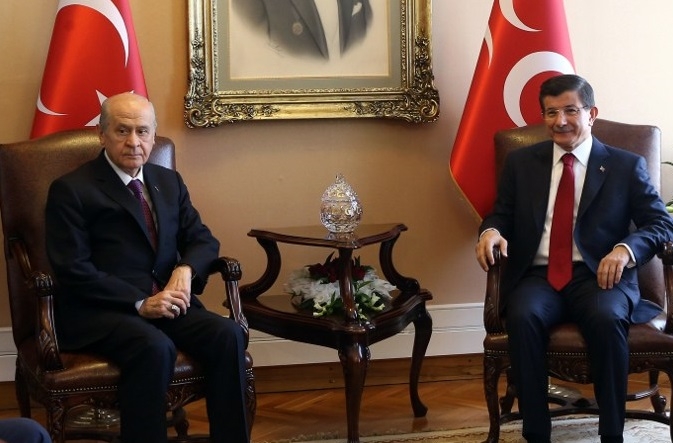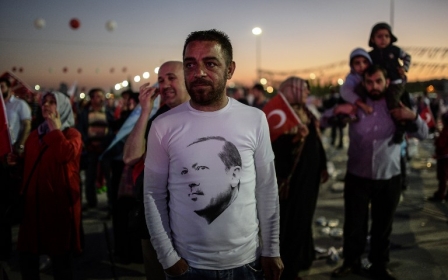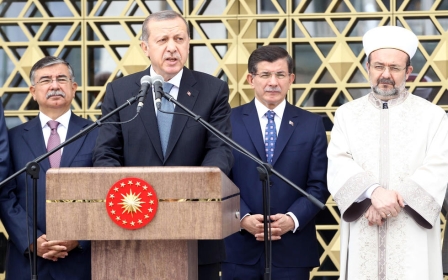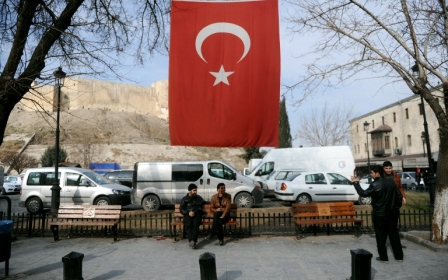Turkey nationalist party refuses to join coalition: PM

Turkish Prime Minister Ahmet Davutoglu said on Tuesday that the ultra-nationalist party MHP had refused to join his government as he embarked on a second day of coalition talks.
Davutoglu's Justice and Development Party (AKP) lost its parliamentary majority in 7 June legislative polls for the first time since it came to power in 2002, forcing it to seek a coalition partner.
The AKP now holds 258 seats in the 550-seat parliament. The Republican People's Party (CHP) has 132, and the Nationalist Movement Party (MHP) and pro-Kurdish People's Democratic Party (HDP) hold 80 apiece.
Davutoglu told a press conference after talks with MHP leader Devlet Bahceli that the ultra-nationalist party preferred to stay in opposition.
"They expressed their desire to remain outside a government alliance," Davutoglu said.
But the prime minister did not rule out holding further coalition talks with the party, saying Bahceli also voiced concerns over "depriving Turkey of a government".
Analysts have seen an AKP-MHP coalition as the most likely option because both parties share a core conservative voter base in the centre of the country.
But the MHP's entrenched opposition to the peace process with Kurdish rebels is a major stumbling block to a coalition deal.
An AKP-CHP "grand coalition" seems all the more possible as the secular party did not flatly reject an alliance after talks with Davutoglu on Monday.
Davutoglu hailed discussions with CHP leader Kemal Kilicdaroglu as "very sincere and friendly".
The election was a blow not only to the AKP's authority but also to President Recep Tayyip Erdogan, who had been hoping the new parliament would agree on a new constitution to increase his powers.
Opposition parties have accused Erdogan of overstepping his presidential powers and have made clear they would not tolerate him interfering in any coalition government.
The MHP has also called on Erdogan to move out of a 1,150-room palace he moved into after being elected president in August 2014 following 11 years as prime minister.
Erdogan on Monday warned the parties to keep his status as president out of coalition talks, blasting such attempts and discussions over his palace as "ugly" efforts to escape their political responsibilities.
He also said he would not allow any of the "mega projects" he has spearheaded, such as a gigantic new airport and a third bridge for Istanbul, to be given up as part of a coalition deal.
The premier has 45 days to form a government, after which Erdogan can call fresh elections.
Some commentators believe fresh polls are the preferred scenario of some within the AKP, who think they may be able to secure a parliamentary majority the second time round.
Davutoglu will meet with the HDP on Wednesday, though both parties have ruled out joining forces.
Middle East Eye propose une couverture et une analyse indépendantes et incomparables du Moyen-Orient, de l’Afrique du Nord et d’autres régions du monde. Pour en savoir plus sur la reprise de ce contenu et les frais qui s’appliquent, veuillez remplir ce formulaire [en anglais]. Pour en savoir plus sur MEE, cliquez ici [en anglais].




